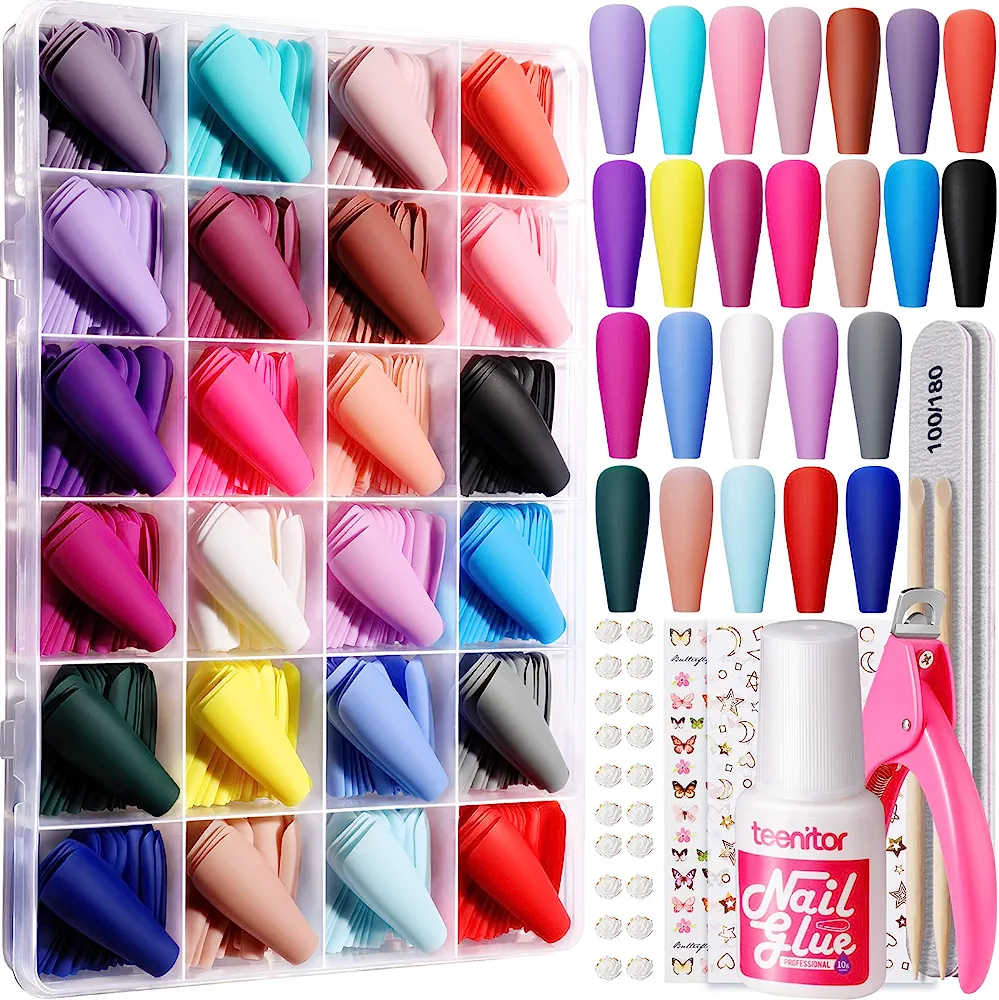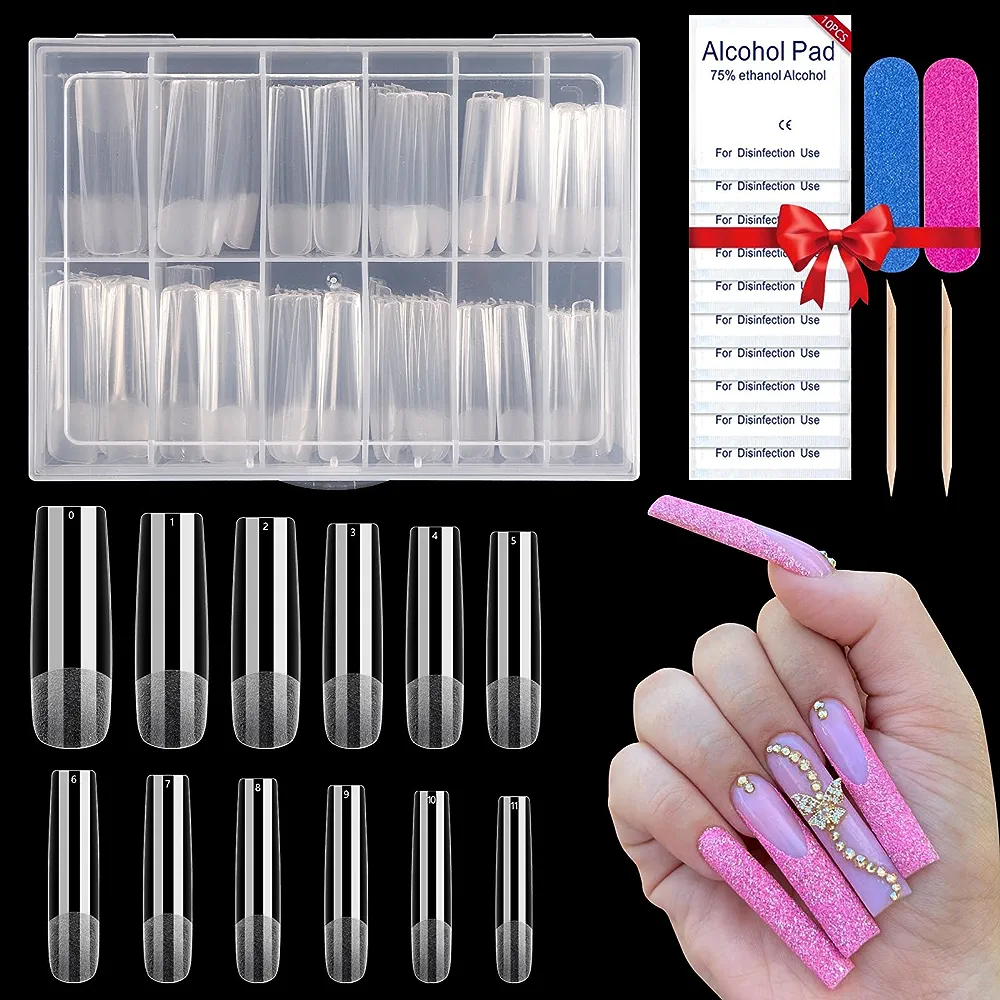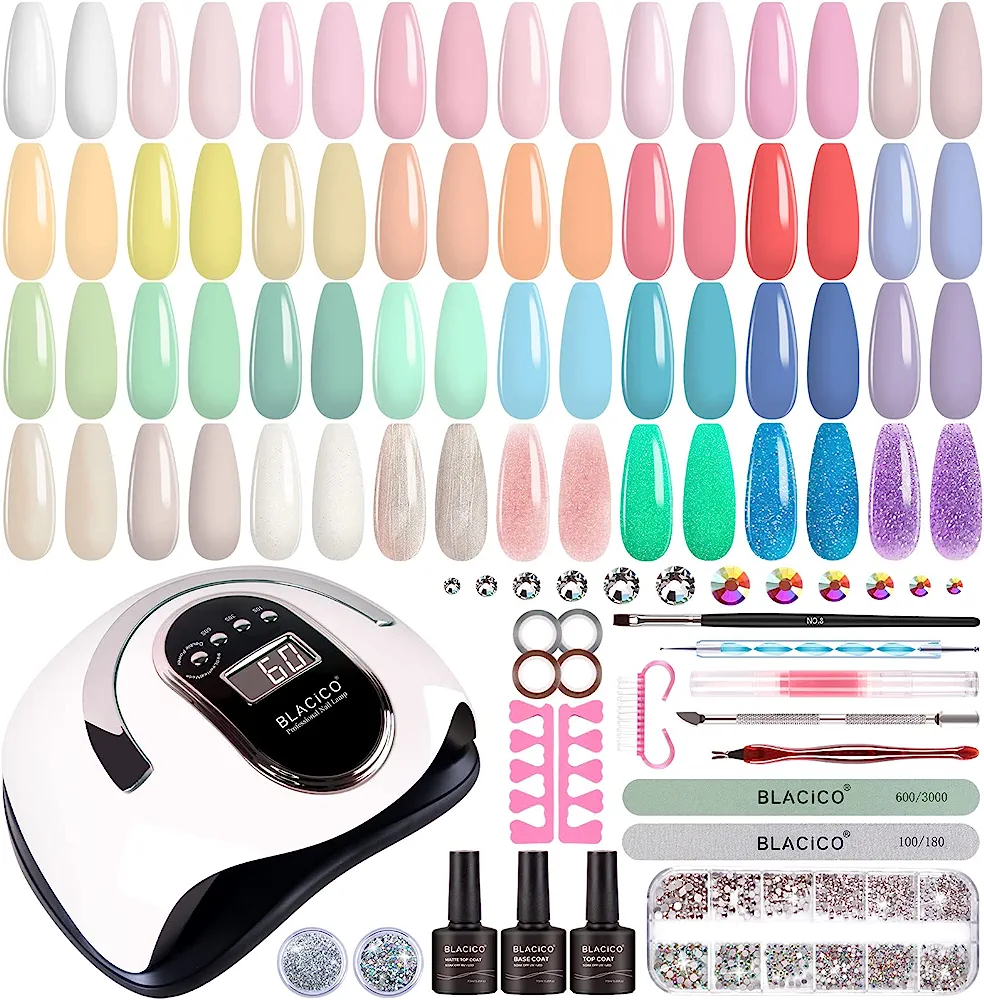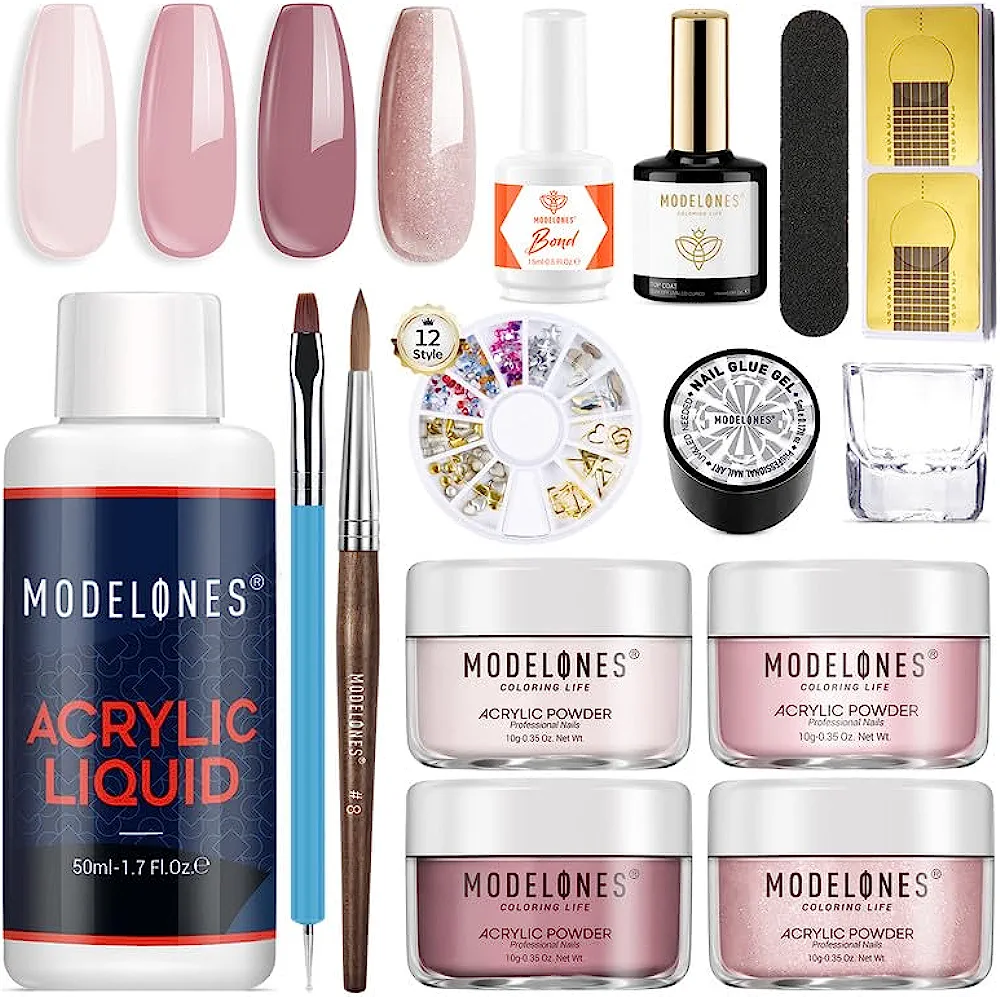What to Know Before Getting Acrylic Nails
Acrylic nails or “fake nails,” are artificial nail extensions made from combining a liquid monomer and powdered polymer. These two components when blended create a durable substance that can be shaped to different lengths and styles. What to Know Before Getting Acrylic Nails? Let’s find out
Whether your desired nail extensions are almond-shaped nails, stiletto tips, or classic square tips, acrylic nails are sure to bring your visions to life.
Table of Contents
The acrylic nail application process involves gently applying the acrylic mixture onto your natural nails, and sculpting it to the shapes or lengths you want. It is commonly done by a skilled nail technician, but you can diy acrylic nails.
When the acrylic mixture dries and hardens, you would have a seamless blend between the artificial extension and your natural nail bed. It is often preferred by nail enthusiasts because you can use the nails to carry out your daily routine without wondering if you would ruin your pretty nails.
The Beginner’s Guide to Acrylic Nails

In the coming paragraphs, we would be discussing the crucial factors you need to know before embarking on your acrylic nail journey. What to Know Before Getting Acrylic Nails includes understanding the nail form, how they are done, then the pros and cons involved, to assessing the health of your natural nails, choosing the right nail technician, and the potential risks you may encounter.
What are Acrylic Nails?
Acrylic nails are artificial nail enhancements that can be applied over natural nails or nail tips to create a wide range of designs. Fusing a liquid monomer and powdered polymer can result in a malleable substance that can be reformed into beautiful and durable nail extensions. Be it elegant and sophisticated or fun and creative, there are lots of awesome possibilities with acrylic nails.
The acrylic material used in forming these nails is quite durable, hence its popularity. They come in different colors, patterns, and finishes, and you can customize these nail extensions to suit your unique style and personality.
How Acrylic Nails Are Applied
Undoubtedly, you may have wondered if it was possible to do acrylic nails at home or how nail technicians can sculpt such fascinating looks. The application process for acrylic nails requires serious expertise, hence, skilled nail technicians. If you’re interested in catching a glimpse at “How To Do Acrylic Nails”, here are some tips to have at your fingertips.
- Preparation: Before applying the acrylic mixture, you need to prepare your natural nails by thoroughly cleaning them. This will ensure that the fake nails adhere properly. Also, if you want just nail tips, it is here that your extensions are sized and shaped to fit your nail bed perfectly.
- Acrylic Mixture: The nail technician then mixes the liquid monomer and powdered polymer to form the acrylic substance that is to be applied to the nails.
- Drying and Hardening: After you apply the acrylic, it begins to dry and harden. Ensure that your nails do not come in contact with water or other products during this period to allow the acrylic to set properly.
- Refining the Shape: When the acrylic has hardened, you may not have had the nail designs you want just yet. The technician then shapes and smoothens the surface of your nails, to create a seamless transition between the extension and your natural nail.
- Color and Design: Whatever pop of color you may have imagined. It is here that the technician enhances your nails with colors and designs. These range from simple solid colors to intricate and abstract designs.
- Final Sealant: A top coat or sealant is then applied over the nails after the designs and added colors must have dried up. The sealant protects the acrylic, locks in the design, and gives your nails a glossy finish and added durability.

Pros and Cons of Acrylic Nails
Like any enhancements in the beauty industry, acrylic nails come with their own set of advantages and disadvantages. They are as follows:
Pros:
- Acrylic nail types are durable and resistant to chipping, thus, ideal for people with weak or brittle natural nails.
- You can style your nails into an extensive range of colors, shapes, and designs for a perfect manicure.
- With proper care, your acrylic nails can last for several weeks.
- Whatever nail length you want, acrylics allow you to achieve that.
Cons:
- Improper application or removal of acrylic nails can potentially damage your natural nails.
- Maintaining acrylic nails involves regular upkeep, including fills and touch-ups, which will help maintain their appearance.
- Some people may be allergic to the chemicals used in the acrylic mixture.
- With the new thickness of your nails, it may take some time to get used to.
Factors to Consider Before Getting Acrylic Nails
Now that we’ve understood the ins and outs of acrylic nails, let’s go through the factors you should consider before you decide to get acrylic nails.
A. Nail Health Assessment
The health of your natural nails is important, and you should prioritize them over cosmetic enhancements. If you have concerns about your nail health, seek professional advice before continuing with acrylic nails. Under nail health assessment, we have two major activities:
1. Checking the Overall Health of Your Natural Nails:
Acrylic nails adhere to the nail beds of the natural nails, hence the need to assess their health. In this examination, you would need to check for any signs of brittleness, peeling, or other damage. If your natural nails are already weak or compromised, applying acrylics could exacerbate the problem.
Allowing your nails to breathe and recover for a while after removing your acrylic nails is important for their health. You can also consult a dermatologist to address any underlying nail health issues before getting acrylics.
2. Potential Issues with Nail Conditions:
Some nail conditions, such as fungal infections or psoriasis, are sometimes not compatible with acrylic nail extensions. They can result in brittle, damaged, or weak nails. Wearing acrylics during this period can trap moisture, thereby worsening the issues and trap moisture, leading to further complications. You would need to take the appropriate treatments and give your nails time to heal before the next appointment.

B. Allergies and Sensitivities
There are some common allergens contained in acrylic nail products. Some individuals may be allergic or sensitive to these chemical components, as they can lead to adverse reactions. Allergic reactions to acrylic nails can manifest as redness, itching, swelling, or painful blisters around the nail area. In some people, the damage done by acrylic to their nails can result in acrylic nail cancer or eczema.
You should familiarize yourself with the key ingredients in acrylic nail products, like ethyl methacrylate (EMA) and methyl methacrylate (MMA). Always check to observe if you have had any previous allergic reactions to these ingredients in nail products.
If you are unsure whether the acrylics can damage your nails, then you should perform a patch test before your nail application. A patch test will help determine if you have any allergies or sensitivities to acrylic nail products. Your nail technician can apply a small amount of the acrylic mixture on your skin (usually on the forearm) and then observe for any adverse reactions over the next 24-48 hours. If you experience any signs of irritation or allergy during this period, you should reconsider getting acrylic nails or explore alternative options.
C. Nail Technician Selection
Applying acrylic nail enhancements needs to be done with precision and expertise, thus you need a skilled nail technician to ensure that the acrylics are applied correctly. Allowing an inexperienced or untrained technician to handle your nails can lead to uneven application, discomfort, and even damage to your natural nails.
Always feel free to ask your chosen nail technician about their experience and qualifications. You can also ask to look at their customer reviews to gauge their expertise.
Always take your time to research different salons or nail technicians in your area. You can seek recommendations from friends or online communities for places with satisfied customers. A reputable salon will prioritize hygiene, use high-quality products, and provide excellent customer service.

Conclusion: What to Know Before Getting Acrylic Nails
By carefully considering these factors, you can make an informed decision about whether acrylic nails are suitable for you. Remember, your nail health and overall well-being should always be the top priority before choosing any nail extensions.
FAQ
What are acrylic nails damage?
Acrylic nail extensions can damage the natural nails because of the filing process and chemicals used.
Are acrylics bad for your nails?
Acrylic nail enhancements can be bad for your nails when they are not applied properly and cared for.
Do acrylic or fake nails ruin your nails?
Yes they can. Prolonged and improper use of these artificial extsnsins can potentially ruin your natural nails.
Do artificial nails hurt?
Some individuals may experience discomfort or pain when applying or removing the nails.
Can fake nails cause eczema?
Yes, it can trigger eczema in individuals with sensitivities to the chemicals used.
Can acrylic nails cause cancer?
There is no direct evidence linking acrylic extensions to cancer, but some chemicals used may pose health risks if not properly handled.

![Silver Nail Designs For The Uncommon Look This [year] Silver nails](https://eucarlwears.com/wp-content/uploads/2023/01/1672158274107-768x768.webp)
![New Black Nails Design in [year] stunning nail look](https://eucarlwears.com/wp-content/uploads/2022/12/1672011562910-768x960.webp)
![Gel Polish Nail Designs ([year]) Gel polish nail design](https://eucarlwears.com/wp-content/uploads/2023/01/1672156436424-768x768.webp)
![10 Recent Acrylic Nail Color Ideas ([year]) Recent Acrylic Nail Color Ideas](https://eucarlwears.com/wp-content/uploads/2023/07/Brown-Simple-Family-Time-Photo-Collage-1-768x614.webp)
![Short Nail Designs You Should Try This [year] Short nail designs](https://eucarlwears.com/wp-content/uploads/2022/12/1672157638358-768x960.webp)
![Taupe Nail Designs For A Neutral Personality in [year] taupe nail designs](https://eucarlwears.com/wp-content/uploads/2023/01/1672158663954-768x960.webp)